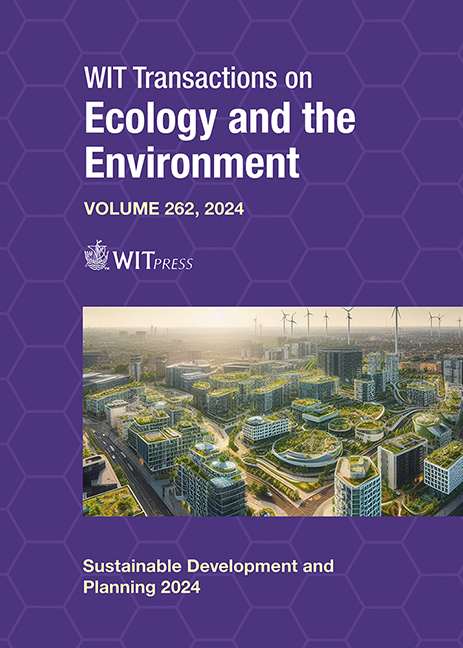THE INTERSECTION OF AGENDA 2063 (GOAL 11) AND SUSTAINABLE DEVELOPMENT GOAL 6: EXPLORING THE ‘HARDER’ OBLIGATIONS FOR WETLAND MANAGEMENT STRATEGIES IN SELECTED AFRICAN COUNTRIES
Price
Free (open access)
Transaction
Volume
262
Pages
10
Page Range
561 - 570
Published
2024
Paper DOI
10.2495/SDP240461
Copyright
Author(s)
BRAMLEY J. LEMINE, CHESNÈ ALBERTUS, BONGANI NCUBE, THOKOZANI KANYERERE, MAHABUBUR CHOWDHURY
Abstract
This paper aims to reflect upon what can be found at the intersection of SDG 6 and Agenda 2063 (Goal 11). Albeit both soft law mechanisms (i.e. SDG 6 and Agenda 2063, Goal 11) are non-binding in nature, they may offer opportunities for significant development in areas of African nations, specifically with the view to promoting the improved management of wetlands. This paper aims to fill the gap based on Royo et al. 2022 and the African Union webpage that published work on the intersections of SDGs and Agenda 2063. There is no concrete or documented evidence of the intersectionality between SDG 6 and Agenda 2063 (Goal 11). It is argued that the benefit of exploring intersectionality is significant, especially in promoting objects of improved wetland management strategies through the lens of the Ramsar Convention of 1971 for African nations. A qualitative method is utilised to achieve this aim, and the analysis techniques include doctrinal legal and documentary analysis techniques. The results demonstrate the binding obligation at this intersection and how African states may utilise their wetland management strategies to demonstrate to the regulatory bodies how they have accelerated or achieved sustainability by cross-cutting these two separate sustainability aspirations (SDGs and Agenda 2063).
Keywords
Agenda 2063, intersection, Ramsar Convention, rule of law, SDG 6, wetland management





